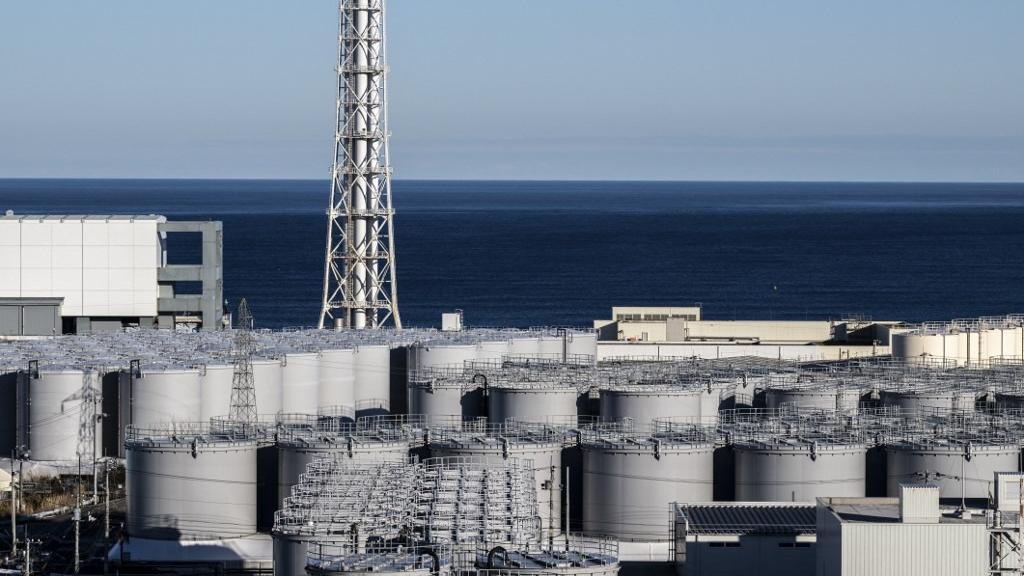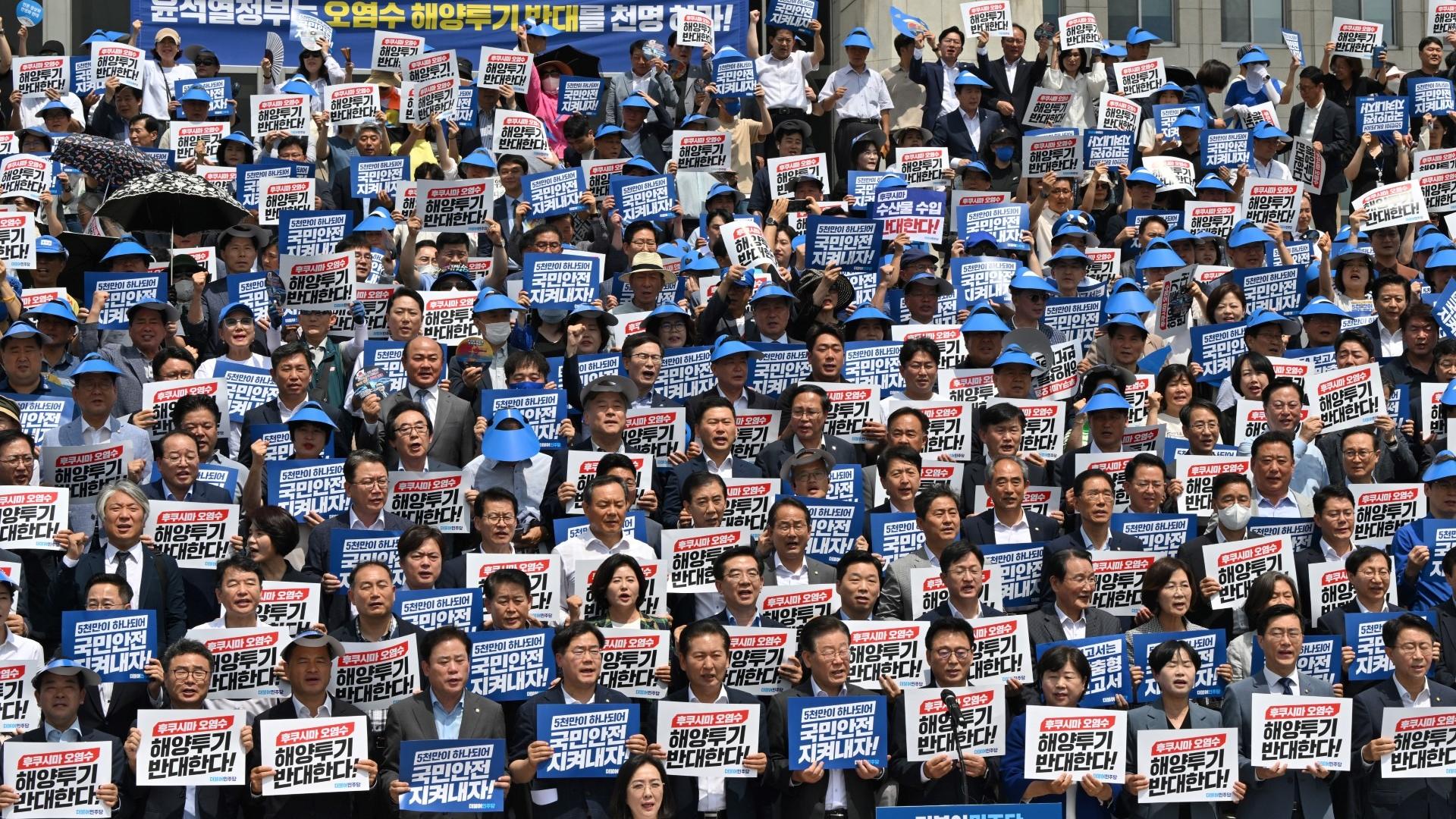 A general view shows storage tanks for contaminated water at the Tokyo Electric Power Company's (TEPCO) Fukushima Daiichi nuclear power plant, in Okuma of Fukushima prefecture, on Jan 20, 2023. (PHOTO / AFP)
A general view shows storage tanks for contaminated water at the Tokyo Electric Power Company's (TEPCO) Fukushima Daiichi nuclear power plant, in Okuma of Fukushima prefecture, on Jan 20, 2023. (PHOTO / AFP)
HONG KONG - Various sectors in Hong Kong have expressed dissatisfaction with an International Atomic Energy Agency (IAEA) report on Japan's disposal of nuclear-contaminated water from the Fukushima nuclear power plant, and strongly protested against Japan's push for the discharge of the wastewater into the Pacific.
Luk Bing-lam, chairman of the Hong Kong Nuclear Society, said that there are many uncertainties in the IAEA's assessment report, and it did not mention how many experts have agreed with Japan's arrangement, which is worrying
A recent online poll on the discharge of the wastewater from the crippled Fukushima Daiichi nuclear power plant, launched by the Hong Kong newspaper Ta Kung Pao, received more than 14,000 responses within four days. Nearly 98 percent of respondents voiced opposition to the water release plan, and over 96 percent did not believe Japan's so-called justification for the discharge.
ALSO READ: China bans food products imports from Fukushima, Japan
Luk Bing-lam, chairman of the Hong Kong Nuclear Society, said that there are many uncertainties in the IAEA's assessment report, and it did not mention how many experts have agreed with Japan's arrangement, which is worrying.
The Hong Kong Federation of Trade Unions has been following the issue of Japan's radioactive water discharge. Lawmaker Joephy Chan, a member of the federation, criticized the IAEA report on the disposal of the nuclear-contaminated water for not being comprehensive, and only adopting Japan's discharge plan, which is not convincing itself.
Cheung Siu-keung, chairman of the Hong Kong Fishermen Consortium, said the consortium strongly protests against the planned discharge of the nuclear contaminated water.
Cheung said the ocean is not a closed space, and if seafood is found to be contaminated with radiation, the fishing industry will be greatly affected.
ALSO READ: Japan’s nuke water dumping plan angers HK residents
 South Korea's main opposition Democratic Party lawmakers and party members hold placards reading "We oppose the dumping of Fukushima contaminated water into the sea" during a rally against Japan's plan to release treated water from the Fukushima nuclear plant, at the National Assembly in Seoul on July 7, 2023. (PHOTO / AFP)
South Korea's main opposition Democratic Party lawmakers and party members hold placards reading "We oppose the dumping of Fukushima contaminated water into the sea" during a rally against Japan's plan to release treated water from the Fukushima nuclear plant, at the National Assembly in Seoul on July 7, 2023. (PHOTO / AFP)
Wu Shiu-sun, a professor at the Department of Science and Environmental Studies of the Education University of Hong Kong, pointed out that radioactive substances will not disappear after they are diluted, and they will spread through marine life to all parts of the world with the impact extending beyond Japan's waters.
The Japanese government has been pushing for dumping the contaminated wastewater this summer from the Fukushima nuclear power plant, which was hit by a massive earthquake and an ensuing tsunami in March 2011.
The move has aroused strong opposition and doubts from Japan's fishing and civic groups, neighboring countries and South Pacific island countries, as well as the international community.


